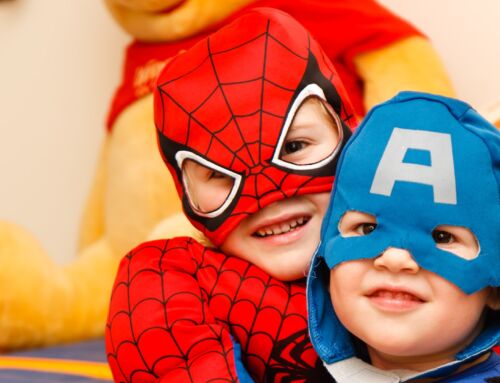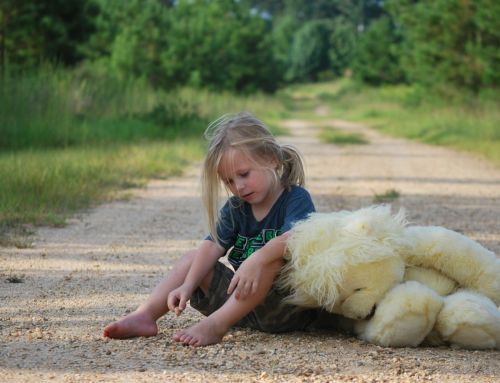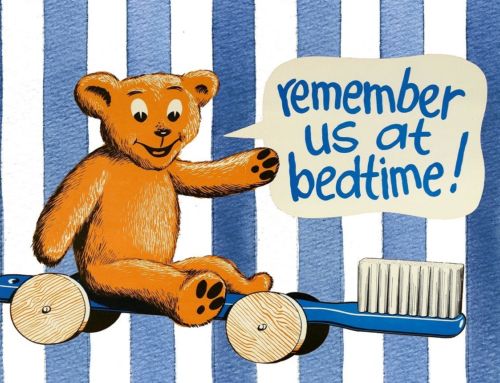How to help your child make friends
Although some children are naturally social, shyness can be a barrier for other kids in developing friendships, but it’s one of the things we can really help children overcome. There’s no need to turn your child into a social butterfly, but you can help them feel more socially confident to become more comfortable making friends.

Playing with friends is an important way for children to learn social rules, such as sharing and taking turns, and to develop resilience, confidence, and problem-solving. Of course, playing is also fun. But for some kids, developing new friendships can be about as hard as learning a new language.
Your child may be shy or cautious by nature, which isn’t necessarily a bad thing. Rather than try to change your child’s personality, you can help him stretch enough that he feels more comfortable reaching out to new friends. The key is taking small and gentle steps to encourage him without being too pushy.
Here are some of the tips that can help your child gaining social experience that will leave him wanting more rather than feeling pressured to do something that he finds difficult.
Set up a playdate
Playdates offer a shy child a starting block for a social life. A few guidelines can increase the odds that he’ll have a good time. “If you promote a positive experience, your child is more likely to want to play again,” says Dale Walker, a professor of child development at the University of Kansas.
Here’s what to do:
Keep playdates small Start by inviting only one or two prospective pals to your house, preferably kids your child already knows. These children should be around your child’s age, “if not a little older”. “The older child might initiate a little more.”
Keep playdates short Between one and two hours is plenty for children this young – you don’t want to overstimulate them.
Plan ahead of Playdates Prepares some games and activities your child enjoys. This will make him more comfortable and keep him feeling good about himself. To get things off to a good start. Make sure there are plenty of materials to go around, so kids don’t have to share right away.
Get involved Don’t just leave the kids to play on their own and hope for the best. Your guidance can make children feel more at ease with each other, especially if they’re just getting acquainted.
Make yourself available in case they run into conflicts, get distracted and stop playing together, or need a change of activity. Oversee art projects, games of hide-and-seek, or time splashing in a wading pool. However, try not to dominate or fill in for your child: The idea is to help break the ice without taking control.
Follow a schedule To develop familiarity, try to arrange regular playdates with the same kids on a weekly basis. If things are going well, meet in a park or playground or at another child’s house. If the playdates go really well and your child runs off independently to play with the others, try leaving him at someone else’s house without you, first for a short time and then for longer periods.
Be a playdate yourself. Have regular playtimes with your child, just the two of you. This allows you to stimulate interaction while getting to know his playing style.
“You can get a sense of where your child struggles and when it is easy for him,” says Alison Ehara-Brown, a licensed clinical social worker who works with children and families in Berkeley, California. For example, if puzzles and games requiring lots of concentration just frustrate your child, don’t include them in your playdate activities.
Consider getting a pet
Some young children just aren’t ready to play with peers. If your child clings to you and refuses to leave your side, consider adding a furry friend to the family. Playing with pets requires social interaction but is usually nonthreatening. This can be a nice way for a child to feel safe and open up his feelings,” says Kimberly Sirl, a child psychologist at St. Louis Children’s Hospital in St. Louis, Missouri. A pet also gives your child something to talk about with other kids. Maybe he can take his hamster to daycare for show and tell, or compare notes with another child at the dog park.
“Dogs are not our whole life, but they make our lives whole.”— Roger Caras
Before getting a pet, though, it’s a good idea to consider how much your child will be able to help with its care.
Be a Role Model
If you look at making friends as a skill to be learned just like any other, it makes sense that kids who are puzzled by the process might benefit from seeing firsthand how it’s done.
Observe others & learn from it Watching videos or reading books about friends with your child is a low-key way to show him that making friends can be fun. Check out Making Friends Is an Art!, by Julia Cook, How Do Dinosaurs Play With Their Friends?, by Jane Yolen, or Too Shy for Show-and-Tell, by Beth Bracken. A good choice for parents to read by themselves is Friends Forever: How Parents Can Help Their Kids Make and Keep Good Friends, by Fred Frankel.
Have your own friends over Young children pay close attention to what grown-ups do and often imitate their behavior, so model friendship for your child by having your friends over, especially for gatherings that include the younger generation. Have a double playdate with a friend who has children.
Show off your social skills Parents can help children develop social-emotional skills through encouragement and modeling. “When you see your children exhibiting friendly behaviors, such as sharing and taking turns, praise them. This encourages children to repeat the positive behaviors. By modeling positive, friendly behaviors, you can guide your children to do the same.
Let your child see you being friendly and outgoing when you answer the phone or when you chat with neighbors or people at the grocery store. When you have the opportunity, be friendly and engaging with kids who are near your child’s age – your child will see that other kids respond well to the effort.
Practice it by Role-Playing the situations
You can help your child feel more confident by exposing him to new settings where he can learn to participate over time. If your child regularly goes with you to the grocery store, encourage him to help you at the checkout until he eventually feels comfortable enough to choose and pay for his own treat. Or sit in the same spot at the playground every visit and let your child gradually work his way over to where others are playing.
At home, try using puppets to role-play ways to make new friends. Your puppet can ask the kinds of questions that get the ball rolling with new kids: “Mr. Bear, what are you building in the sand? Can I help?”
You can do some role-playing on your own too. Talk about a situation that makes your child feel shy, such as joining another child on the swings at the playground. You can be the child on the swings while your child practices what he might say to you to join in.
Be Realistics at setting up your expectations
By the time your preschooler reaches age 3, his interactions with other children will be more involved. But preschoolers on the younger side play mostly side by side, imitating each other rather than playing together directly.
If your child feels pressure to do more than this, the best intentions can backfire. He is probably already feeling insecure around other kids, and pressure from a parent can fuel his insecurity. Your child may fear disappointing you, or the issue can become a power struggle.
Your Role in your child’s relationship with other kids
Kids can usually forge their own relationships, but they may need help navigating these social situations.
If her bestie says she doesn’t want to be friends any more Miscommunication causes a lot of drama, so help your child practice the words to tell a pal when she is upset. She could say, “I don’t understand why you don’t want to be friends.”
If he needs to apologize Teach your kids to be specific about what they’re sorry for. Then have them follow up with, “How can I make you feel better?”
If he says he has no one to play with at recess Suggest he ask someone to play instead of waiting to be asked to join in.
Get help if you sense a real problem
In most cases, shyness or difficulty making friends in early childhood is normal. But a few red flags could indicate that something else is going on. If at age 3, your child rarely holds eye contact, is unusually withdrawn, doesn’t want to play with other children, or seems terrified of going to preschool or the playground, talk to your child’s doctor.
SIMILAR READS: The Benefits of Cooking with Kids, Anxiety in kids – How to Overcome that







